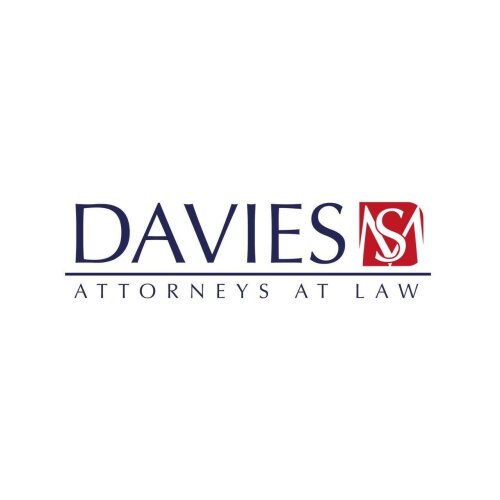Best Tax Increment Financing Lawyers in Cambodia
Share your needs with us, get contacted by law firms.
Free. Takes 2 min.
Or refine your search by selecting a city:
List of the best lawyers in Cambodia
About Tax Increment Financing Law in Cambodia
Tax Increment Financing (TIF) is a public financing method used to subsidize redevelopment, infrastructure, and other community improvement projects. While it is a well-established financial tool in various countries, TIF is relatively nascent in Cambodia. The Cambodian government is increasingly looking at TIF as a means to boost economic development and support urbanization efforts, particularly in its rapidly growing cities. TIF in Cambodia looks to stimulate investment in underdeveloped areas by leveraging the future increase in property tax revenues to fund current development projects.
Why You May Need a Lawyer
Tax Increment Financing, though potentially beneficial, involves complex legal structures and significant financial commitments. Common situations where legal expertise is necessary include:
- Understanding the intricacies of TIF agreements and ensuring compliance with local regulations.
- Negotiating terms with governmental bodies and development authorities.
- Protecting interests during disputes over financing terms or project impacts.
- Advising on implications of TIF agreements on existing businesses or property rights.
- Ensuring transparent and lawful allocation of funds and addressing audit findings.
Local Laws Overview
The Cambodian legal framework for Tax Increment Financing is still developing, influenced by international practices and local economic objectives. Key aspects of Cambodian laws relevant to TIF include:
- The role of the Ministry of Economy and Finance in approving TIF projects and setting regulatory standards.
- The involvement of local municipalities in identifying potential TIF districts based on specified criteria.
- Regulations governing the calculation and allocation of tax increments for financing development projects.
- Legal provisions for public participation and transparency in TIF project planning and execution.
- Guidelines on environmental and social impacts assessments to ensure sustainable development.
Frequently Asked Questions
What is the primary purpose of TIF in Cambodia?
The primary purpose of TIF in Cambodia is to facilitate urban redevelopment, stimulate economic growth, and improve public infrastructure in underdeveloped or declining areas.
Who can propose a TIF project?
TIF projects can be proposed by municipal authorities, private developers, or a public-private partnership, subject to approval by relevant governmental departments.
How are TIF areas determined?
TIF areas are designated based on specific criteria such as the potential for economic growth, need for infrastructure improvements, or observed declines in property values.
How does TIF funding work in practice?
Once a TIF district is established, the future increase in property tax revenues in that area is diverted to finance current development projects within the district instead of going into the general municipal fund.
Are there risks associated with TIF projects?
Yes, risks include potential financial shortfalls if projected tax increments do not materialize, as well as legal disputes over land use and project impacts.
Do TIFs increase taxes for local residents?
No, TIF does not increase tax rates for local residents; it rather reallocates future tax increments to finance development projects.
Can a TIF project be modified after approval?
Yes, modifications can occur, but they require additional approvals and are subject to legal review and public consultation processes.
What legal recourse is available if disputes arise in TIF projects?
Legal recourse includes arbitration and litigation, depending on the nature of the dispute and terms outlined in the TIF agreement.
How long does a typical TIF district last?
The lifespan of a TIF district can vary, but it usually ranges from 15 to 25 years, allowing enough time for tax increments to adequately fund development costs.
Is community input considered in TIF planning?
Yes, community input is a crucial component in the TIF planning process, ensuring that projects align with the needs and expectations of local residents.
Additional Resources
Several resources are available for those seeking more information about Tax Increment Financing in Cambodia:
- The Ministry of Economy and Finance provides official guidelines and regulatory updates on TIF projects.
- Municipal offices can offer insights into local TIF districts and ongoing projects.
- Legal consulting firms specializing in Cambodian real estate and finance law.
- Non-governmental organizations (NGOs) that focus on urban development and public policy.
- International development partners who may provide best practices and case studies.
Next Steps
If you require legal assistance with Tax Increment Financing in Cambodia, consider the following steps:
- Assess the specific legal needs related to your proposed or ongoing TIF project.
- Research and consult with reputable legal practitioners or firms specializing in Cambodian finance and development law.
- Prepare all relevant documentation and background information needed for legal consultations.
- Engage with local authorities and TIF stakeholders to address any regulatory or compliance concerns.
- Follow-up regularly with legal counsel to ensure all aspects of your TIF involvement are managed efficiently and lawfully.
Lawzana helps you find the best lawyers and law firms in Cambodia through a curated and pre-screened list of qualified legal professionals. Our platform offers rankings and detailed profiles of attorneys and law firms, allowing you to compare based on practice areas, including Tax Increment Financing, experience, and client feedback.
Each profile includes a description of the firm's areas of practice, client reviews, team members and partners, year of establishment, spoken languages, office locations, contact information, social media presence, and any published articles or resources. Most firms on our platform speak English and are experienced in both local and international legal matters.
Get a quote from top-rated law firms in Cambodia — quickly, securely, and without unnecessary hassle.
Disclaimer:
The information provided on this page is for general informational purposes only and does not constitute legal advice. While we strive to ensure the accuracy and relevance of the content, legal information may change over time, and interpretations of the law can vary. You should always consult with a qualified legal professional for advice specific to your situation.
We disclaim all liability for actions taken or not taken based on the content of this page. If you believe any information is incorrect or outdated, please contact us, and we will review and update it where appropriate.
Browse tax increment financing law firms by city in Cambodia
Refine your search by selecting a city.















